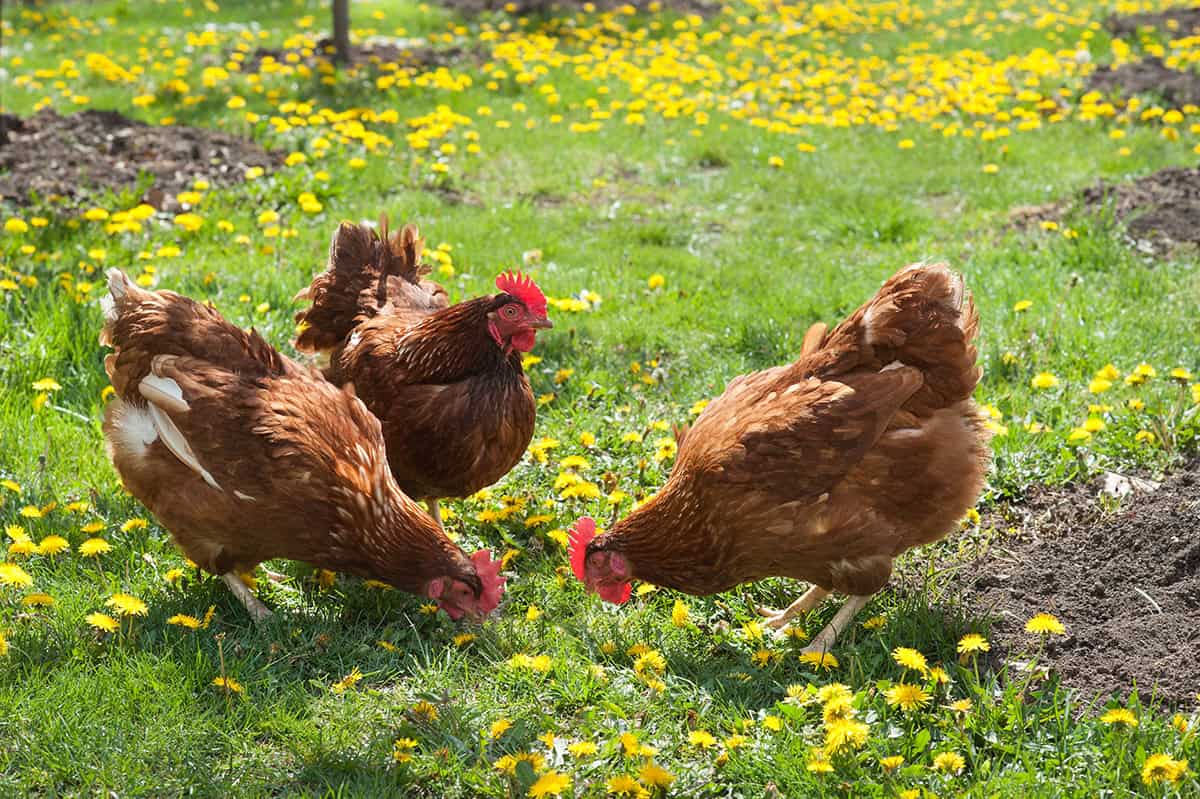If you love growing flowers and raising chickens, you might wonder which blooms are safe for your feathered friends. Not all garden favorites are harmless for hens, but plenty add color to your yard without worry. Here are 20 beautiful flowers you can grow confidently around your flock.
Table of Contents
Marigold
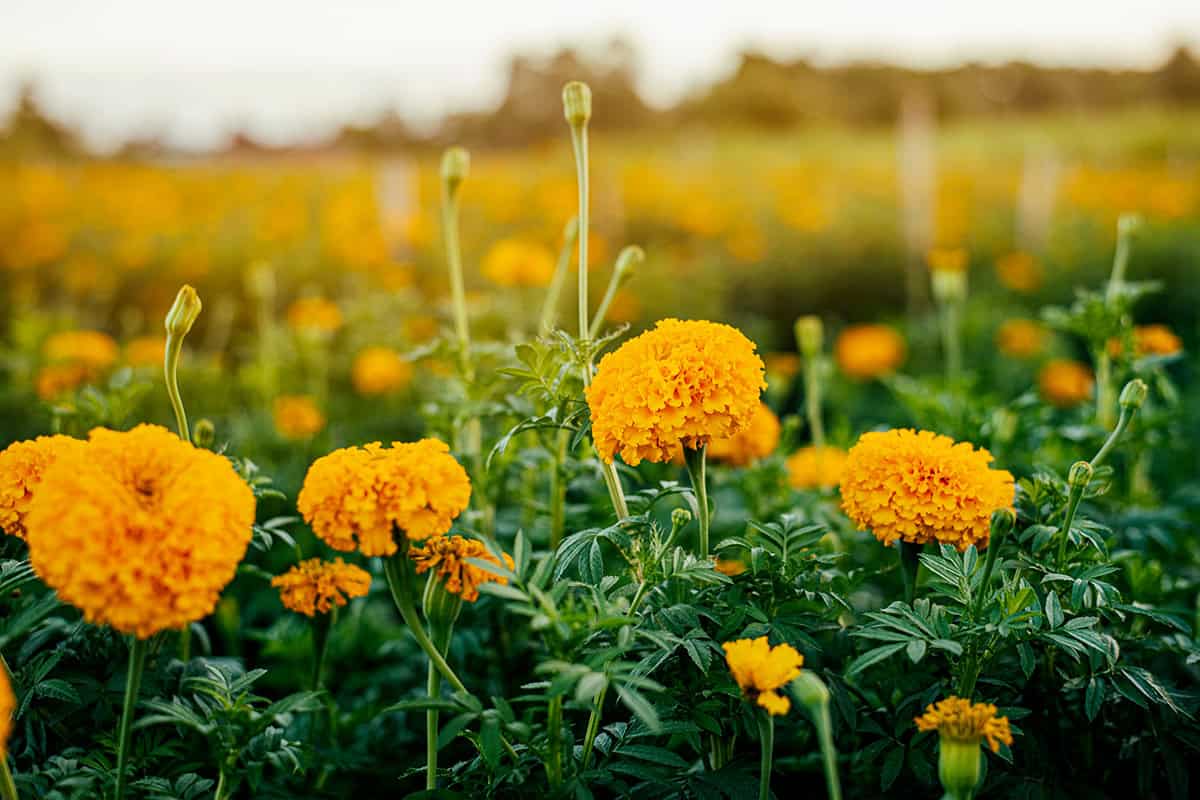
Marigolds are a vibrant and useful addition to any chicken-friendly garden. Known scientifically as Tagetes, these flowers bring beauty and utility. They help repel insects naturally, making your garden and chicken area healthier.
One of the fascinating aspects of marigolds is their use in enhancing egg quality. In Mexico, these flowers are included in chicken feed. The result is eggs with a richer, deeper yolk color.
To grow marigolds, plant seedlings outside once there’s no frost risk. These flowers do well in various climates and add bright color to your garden.
When marigolds bloom, they attract beneficial creatures. You may notice more bees, butterflies, and birds visiting your garden. This makes the environment lively and aids pollination.
Consider including marigolds if you’re designing a garden for your chickens. They provide visual appeal and contribute to the ecosystem’s health by managing unwanted insects naturally.
Nasturtium
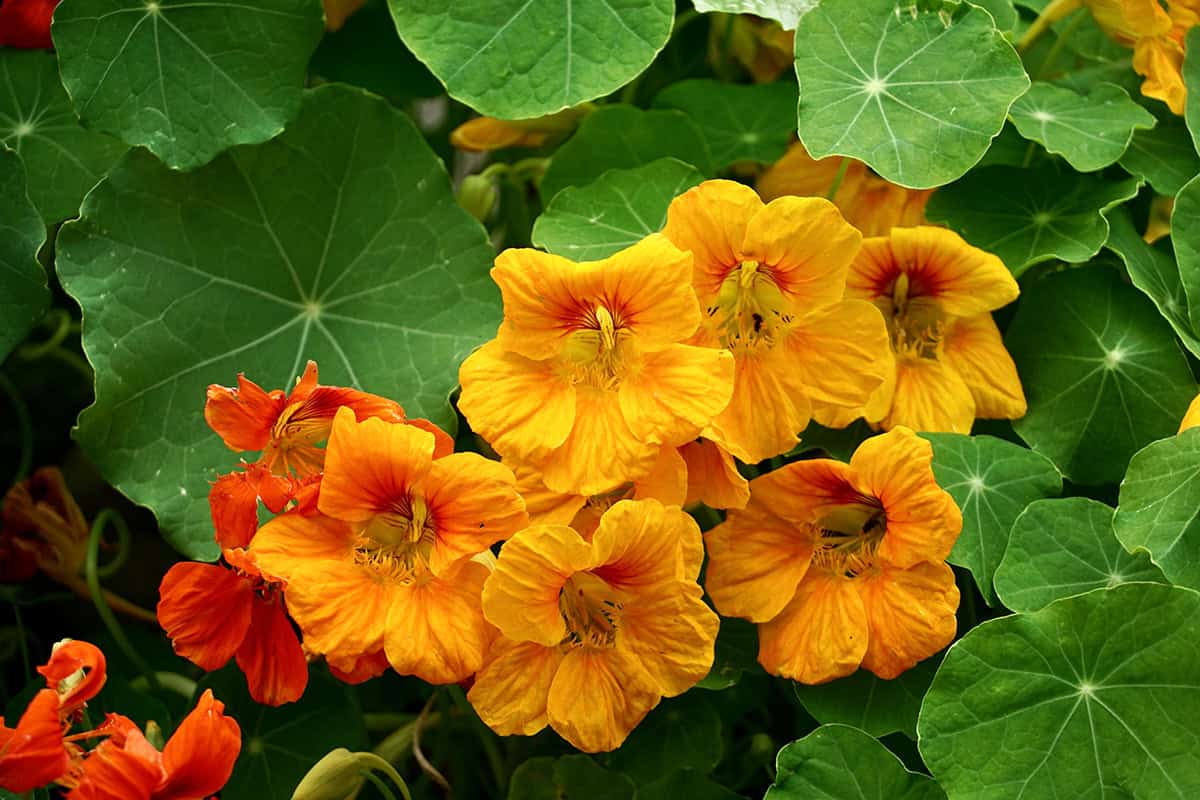
Nasturtium is a vibrant flower that benefits your chickens. Its leaves and flowers are safe and edible. Chickens enjoy the peppery flavor. This flower offers a natural diet supplement. Rich in vitamins A and C, it keeps your flock healthy.
These flowers thrive in various environments. Plant them in sunny or partially shaded areas. They require well-drained soil. Nasturtium grows as annuals in many climates. Its easy-going nature makes it a perfect addition to your chicken area.
Nasturtium doesn’t just provide nutrition. It also attracts beneficial insects. These insects can improve your garden’s ecosystem. The presence of nasturtium may deter pests. This offers your chickens a cleaner, healthier environment.
Integrate nasturtium into your yard. Your chickens will find shade and shelter under its sprawling growth. The bright colors can create a pleasant aesthetic. Plus, your chickens will love the tasty snack.
Cultivate nasturtium alongside other safe plants. It complements a natural and thriving habitat. Used as a part of your garden’s design, it contributes to ecosystem balance.
Consider nasturtium’s versatility. It’s known for self-seeding. This allows for minimal maintenance. You’ll enjoy a return of blooms each season, providing ongoing benefits for your chickens.
Calendula (Pot Marigold)
Calendula, also known as Pot Marigold, is ideal for a chicken-friendly garden. It is often grown for both its beauty and utility. You can find its bright flowers in hues like orange and yellow throughout many gardens.
Your chickens can peck at calendula safely. It is non-toxic to them, offering a nutritious treat. The petals are even edible for humans and can be added to salads and teas.
The plant is easy to grow. It thrives in various climates and can self-seed, ensuring it returns each season. Bees and other pollinators are attracted to calendula, promoting a healthy garden ecosystem.
Calendula has medicinal properties too. It has been used traditionally for its soothing effects. Creams and infusions made from the petals help with minor skin irritations.
Planting calendula helps deter many pests naturally. Its strong scent can keep unwanted insects away, making it a good companion plant. This dual-purpose plant enhances both aesthetic and practical aspects of your garden.
Chamomile
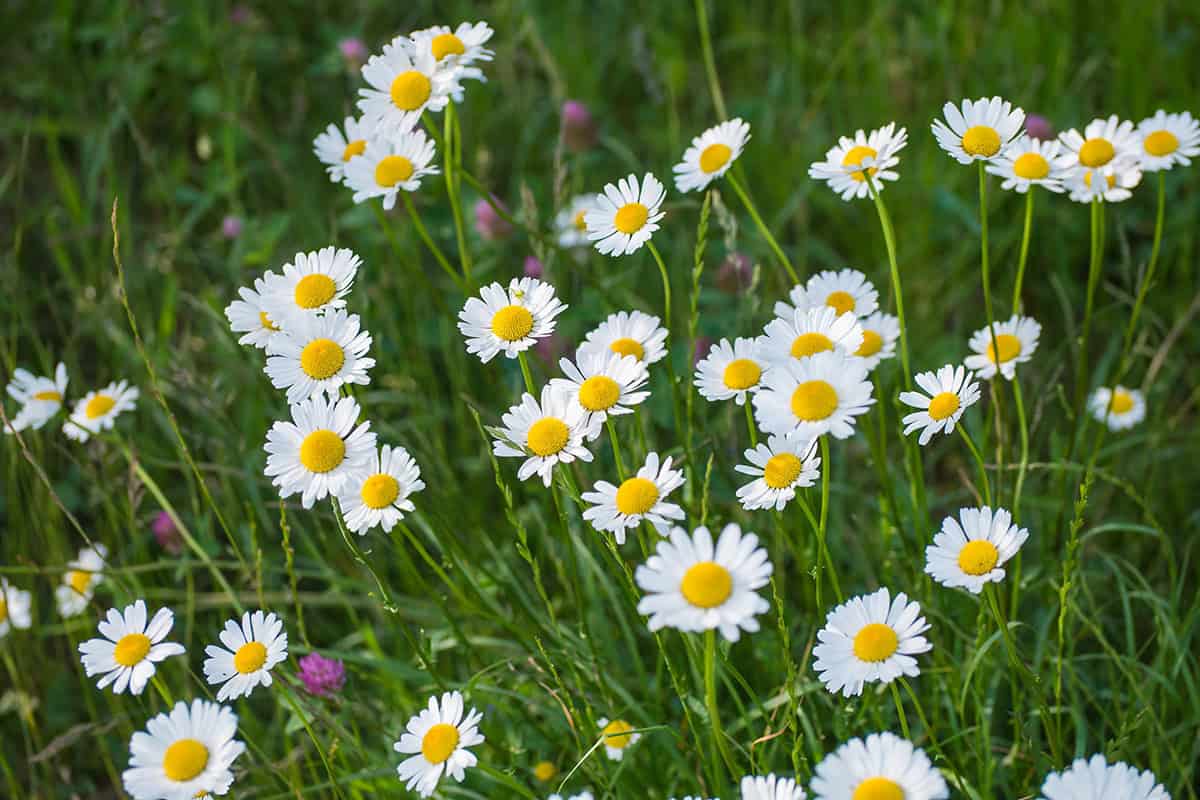
Chamomile provides a safe environment for chickens. There are two types: German and Roman chamomile. German chamomile is typically grown from seed and thrives in well-drained soils with full sun exposure. The plant’s flowers can be used fresh or dried.
Roman chamomile is a low-growing perennial. It prefers cooler conditions and moderate shade. Its soil should remain moderately moist. Chamomile is known for its soothing and calming properties, which can benefit your chickens’ well-being.
A chamomile garden is not only a safe choice for chickens but also visually appealing. Incorporating it into your garden may contribute to a serene environment for your flock. This adds a beneficial aspect to your gardening efforts.
Planting chamomile around the coop can help create a peaceful atmosphere for your chickens. You offer them access to a botanical known for its calming effects. This addition is both practical and beneficial.
Chamomile can be used in various ways. Its extract or oil can also be utilized for its therapeutic properties. Keeping your chickens’ surroundings natural and toxin-free is essential, and chamomile is a suitable option. Consider chamomile as part of your safe flora choices for your flock.
Lavender
Lavender can be a safe addition to your chicken’s environment. Chickens often enjoy foraging and pecking at these aromatic plants. These flowering plants provide not only a pleasant aroma but also a pop of color to your garden.
Lavender belongs to the Lamiaceae family and is known for its fragrant flowers and essential oils. The scent can help create a calm atmosphere, which can contribute to reducing stress in your flock. This might help in managing their behavior and well-being.
Chickens are generally not harmed by lavender. This makes it a practical choice for enclosures where chickens roam freely. The plant is non-toxic when consumed in small quantities, offering a great landscape option.
Incorporate lavender into your garden by planting it in areas accessible to your chickens. It is hardy and can tolerate sunny, dry conditions, making it suitable for various climates. Moreover, its hardy nature assures gardeners it’s easy to maintain.
Including lavender near chicken coops could also create a more pleasant environment. Its aromatic properties may even help deter pests, enhancing its utility in your backyard setup. This adds an extra layer of care for your chickens.
Rose Petals
Rose petals can be a delightful addition to your chickens’ diet. They’re safe and nutritious for your flock to consume. The antioxidants in rose petals help improve your chickens’ overall health.
Consider the petals a treat for your chickens. They offer a gentle, floral scent that can stimulate your chickens’ appetites, making mealtime more enjoyable.
Ensure you wash the petals thoroughly before feeding them to your chickens. This removes any pesticides or chemicals that might be present. Fresh rose petals are best, retaining more nutritional benefits.
Removing the bitter white base of the petals can improve taste and prevent digestive issues. These parts are often less digestible and not as appealing.
Keep in mind that variety in diet is important. Rose petals should be just one of many natural food options you provide.
Sunflower

Sunflowers can be a beneficial addition to your chicken’s diet. Not only do sunflower seeds provide a good energy source, but they also supply essential nutrients. Chickens enjoy pecking at them, and you will likely notice an increase in egg production due to the protein content.
You might choose to feed whole sunflower seeds or just the kernels. Both options are acceptable. When feeding chickens, moderation is important. Too many seeds can lead to weight issues. It’s a good idea to mix sunflower seeds with other feeds.
Your chickens will benefit from the roughage sunflowers provide. The physical activity of pecking helps keep chickens entertained. Moreover, sunflowers’ growth and resilience make them easy to cultivate for chicken owners.
Adding sunflowers to your garden can provide shade and windbreaks. Chickens will appreciate the resulting cooler microclimate. Plus, a sunflower garden might attract other beneficial insects, encouraging natural pest control.
Hibiscus
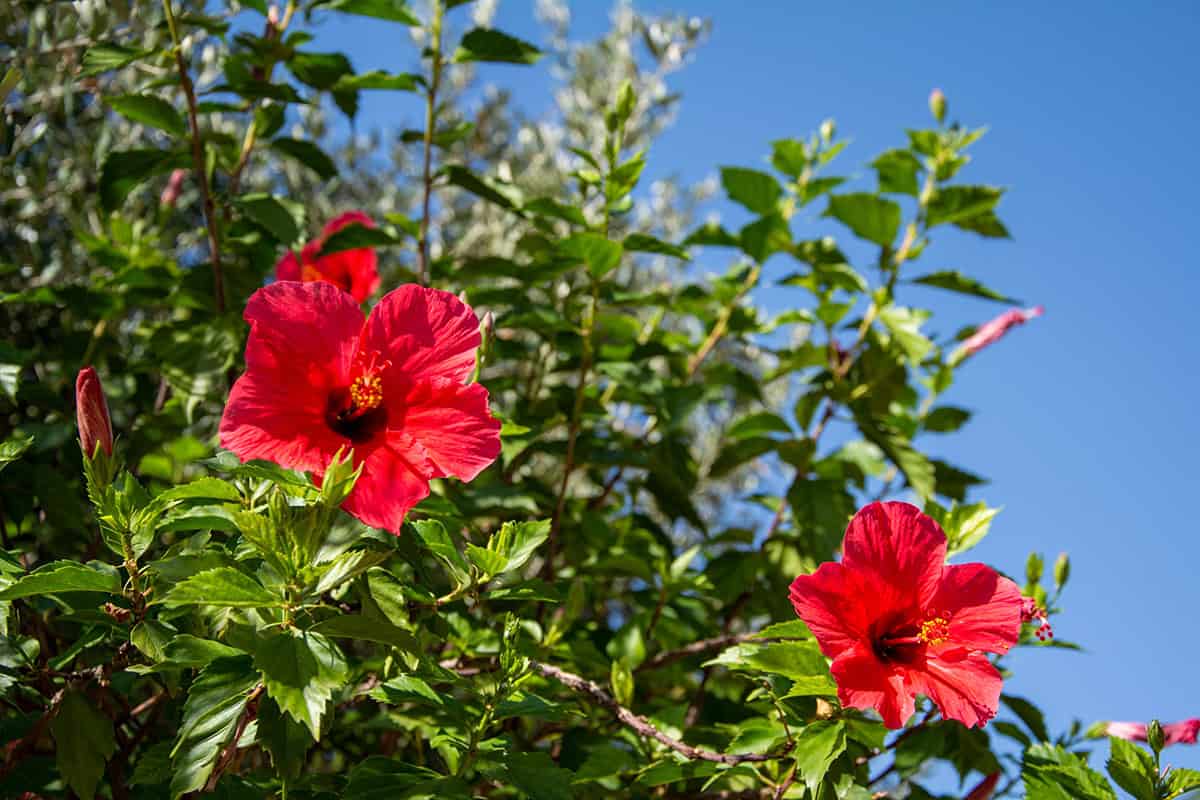
Hibiscus flowers are a safe choice for chickens. These vibrant blooms are not only non-toxic, they also add color to your garden.
Chickens enjoy nibbling on hibiscus petals. The flowers contain vitamin C, which is beneficial for their health. Ensure that your chickens have controlled access so they do not overconsume.
These flowers are easy to grow. Hibiscus plants thrive in well-drained soil with plenty of sunlight. Regular watering will keep them healthy, but avoid waterlogged conditions.
Temperature considerations: Hibiscus requires warmth. Protect the plants during cold weather. In colder climates, potted hibiscus plants can be brought indoors for winter.
Keep an eye on your other garden plants. Although hibiscus is safe for chickens, they might also peck at nearby vegetation. Ensure other plants in the garden are safe for birds.
Echinacea (Coneflower)
Echinacea, commonly known as coneflower, is a popular choice for gardens. Chickens generally accept this plant well, making it suitable for your flock. Native to North America, these perennials add beauty to any garden with their bright, daisy-like flowers.
Incorporate Echinacea into your garden easily. They thrive in well-drained soil and full sun. Regular watering during dry spells keeps them healthy. Minimal maintenance is required, which makes them great for busy gardeners.
The health benefits of Echinacea are noteworthy. People often use it in herbal medicine. It may help with colds and boost the immune system. While these benefits cater mainly to humans, your feathered friends enjoy scratching around it.
Echinacea also attracts beneficial insects like pollinators. Bees and butterflies love it. Chickens benefit from this too, as more insects mean more foraging opportunities. This enriches their diet naturally.
Consider rotating your planting areas to prevent soil exhaustion. This practice benefits both the plants and your chickens. A happy, healthy garden supports a happy, healthy flock.
Bee Balm (Monarda)
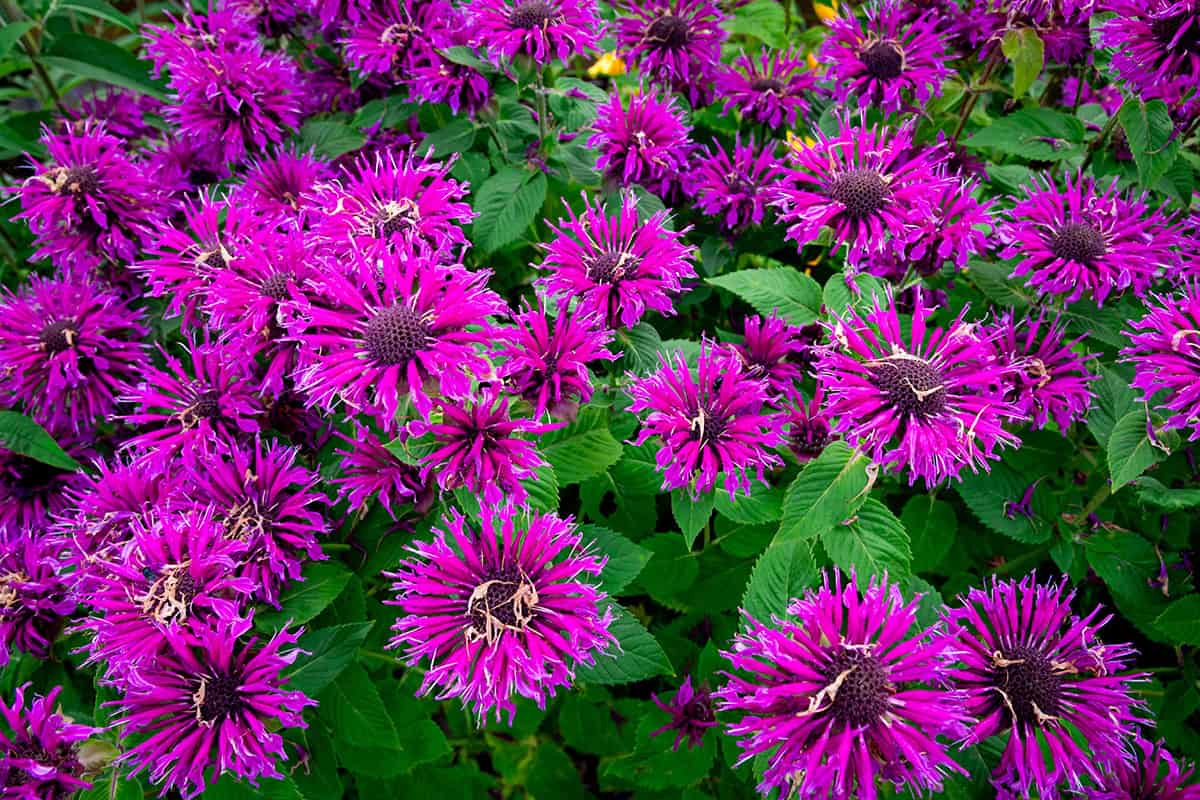
Bee Balm, known scientifically as Monarda, is a flowering plant. It is safe for chickens. You can find Bee Balm in many gardens. It is popular for its bright and colorful flowers.
The plant attracts pollinators. This includes bees, butterflies, and hummingbirds. Its scent is also appealing. Your chickens can safely be around this plant.
Bee Balm prefers sunny areas. It does well in well-drained soil. It requires regular watering but avoid waterlogging. Ensure space between plants for airflow. This can prevent fungal problems.
The plant has herbal uses for humans. It is often used in teas. Due to its safety, you can let your chickens access it. They might not eat it, but they enjoy the shade.
Planting Bee Balm can enhance your garden. It has vibrant blossoms. Chickens roam freely without danger near it. Consider adding this plant for a safe floral environment.
Pansies
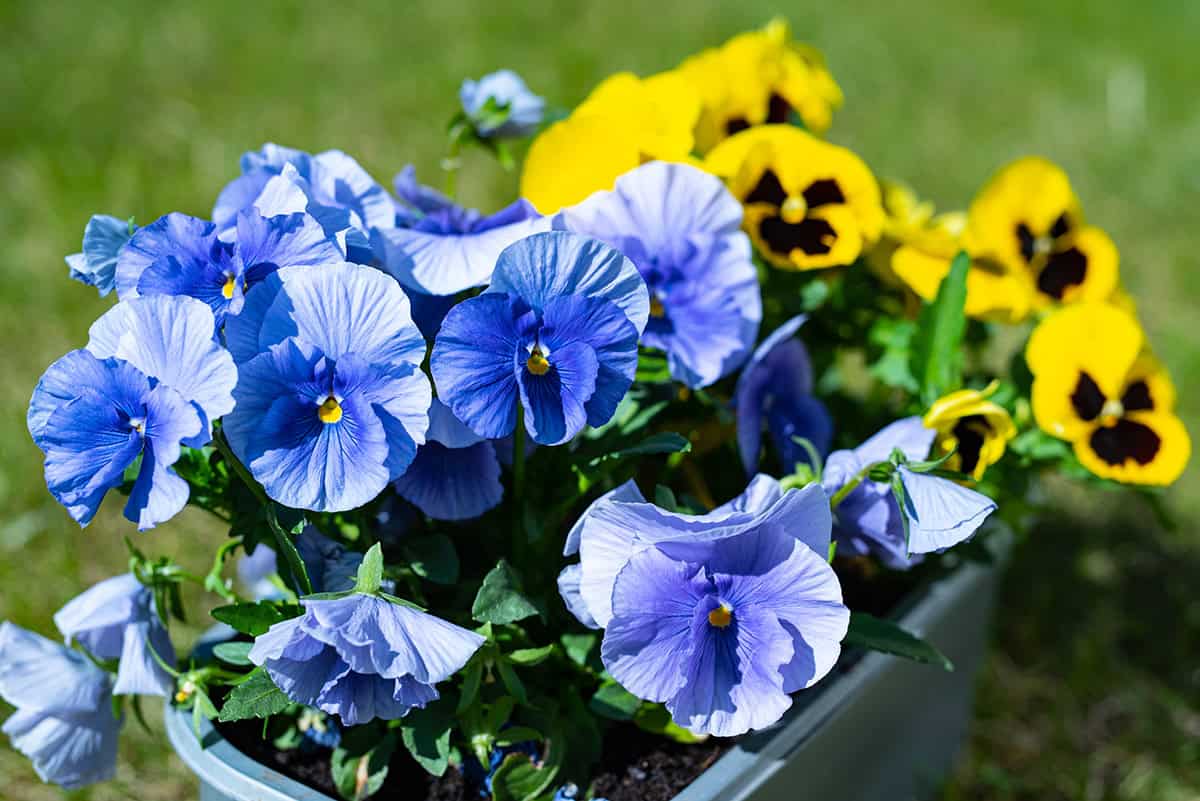
Pansies are a popular choice in gardens and can be safe for chickens. These flowers are known for their vibrant colors and distinct “face” markings. You can find them in shades of purple, yellow, blue, and more. Chickens sometimes peck at them, enjoying both the flowers and leaves.
Pansies tolerate various temperatures, making them versatile. In winter, they remain vibrant and add color to gardens even in cold weather. This makes them appealing for year-round landscaping.
While pansies are generally safe, always monitor your chickens when introducing new plants. Some individual plants in the garden could still pose risks if treated with chemicals. Ensure that all plants are organic and pesticide-free.
As with any plant, avoid relying on a single source of information. Combine research with practical observation to make informed choices about your chickens’ diet and environment.
Bachelor’s Buttons (Cornflower)
Bachelor’s Buttons, also known as Cornflower, are a popular choice for many gardens. These plants are scientifically known as Centaurea cyanus and belong to the Asteraceae family. They are known for their charming blue flowers, although pink and white varieties exist.
This annual plant thrives in cool weather conditions. You’ll often find it growing in fields, along roadsides, and sometimes in unexpected places like railroads.
For chicken owners, Bachelor’s Buttons are a safe addition to your garden. Unlike some other plants, they are non-toxic to chickens. Your feathered friends can peck around them without risk. It’s an easy way to add beauty without worry.
The plant is low-maintenance. It doesn’t require much care, making it suitable for busy gardeners. Regular watering and sunlight help it bloom beautifully. It’s not picky about soil, thriving in various conditions.
Adding Bachelor’s Buttons to your garden not only benefits chickens but also enhances the visual appeal. You’ll enjoy these striking flowers while ensuring a safe environment. They also attract butterflies and other beneficial insects.
Chickens enjoy exploring gardens, and Bachelor’s Buttons can be a part of their habitat. The plant’s vibrant color might even stimulate their curiosity. Choose this plant if you value aesthetics and safety.
Dandelion

Dandelions are an excellent choice for chicken-friendly plants. These flowers are safe for chickens to consume. They offer numerous benefits. The entire plant, from root to flower, is edible for your flock. Chickens can happily peck at the leaves and blooms without any issues.
Dandelions provide important nutrients. They are high in vitamins A, C, and K. This contributes to the overall health of your birds. Calcium in dandelions helps in the development of strong bones and eggshells. Including dandelions in your chickens’ diet can promote better egg production.
These plants also support your garden ecosystem. They act as early nectar sources. Pollinators like bees are attracted to them. This enhances pollination in your garden. Allow chickens to forage among dandelions to create a balanced environment.
Manage dandelions in your poultry pasture by considering both aesthetic and functional aspects. Space them appropriately. This allows chickens easy access while maintaining good ground coverage. Doing so supports your chickens’ dietary needs and contributes to a vibrant garden setting.
Clover Blossoms
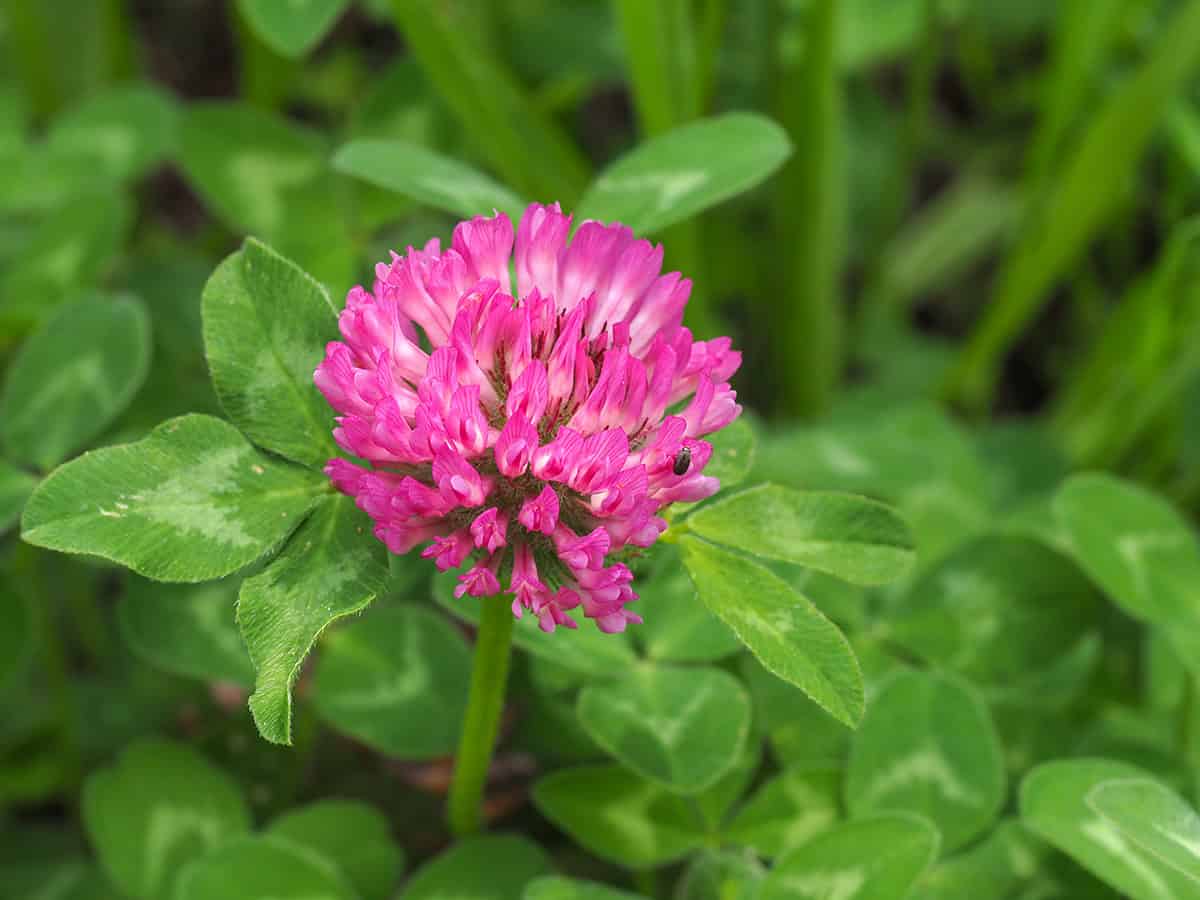
Clover blossoms are a nutritious treat for your chickens. These flowers provide a good source of energy. Animals enjoy their taste and texture. Chickens benefit from the nutrients in clover blossoms.
Chickens can safely nibble on clover. They often thrive in environments with plenty of clover. They are fortunate because clover is easy to grow. It often grows abundantly in fields and gardens, making it an accessible food option.
It’s helpful to know that clover flowers come in different varieties. Red and white clover are common types. Both are non-toxic to chickens. Clover offers a natural pasture option.
Though clover itself is safe, moldy clover isn’t. It’s important to check for mold or fungus. Mold can release harmful compounds. Rhizoctonia fungus may grow on clover. Moldy clover should not be fed to chickens. Always ensure clean and fresh blossoms for feeding.
You can add diversity to your chickens’ diet with clover blooms. These flowers support health and vitality. Clover can help in maintaining active and healthy chickens. Consider integrating clover blossoms into your feeding routine.
Chickens enjoy foraging on their own. Providing access to clover encourages natural behavior. This is not only good for physical health but also mental well-being. Supporting these needs results in happy, healthy chickens.
Violets
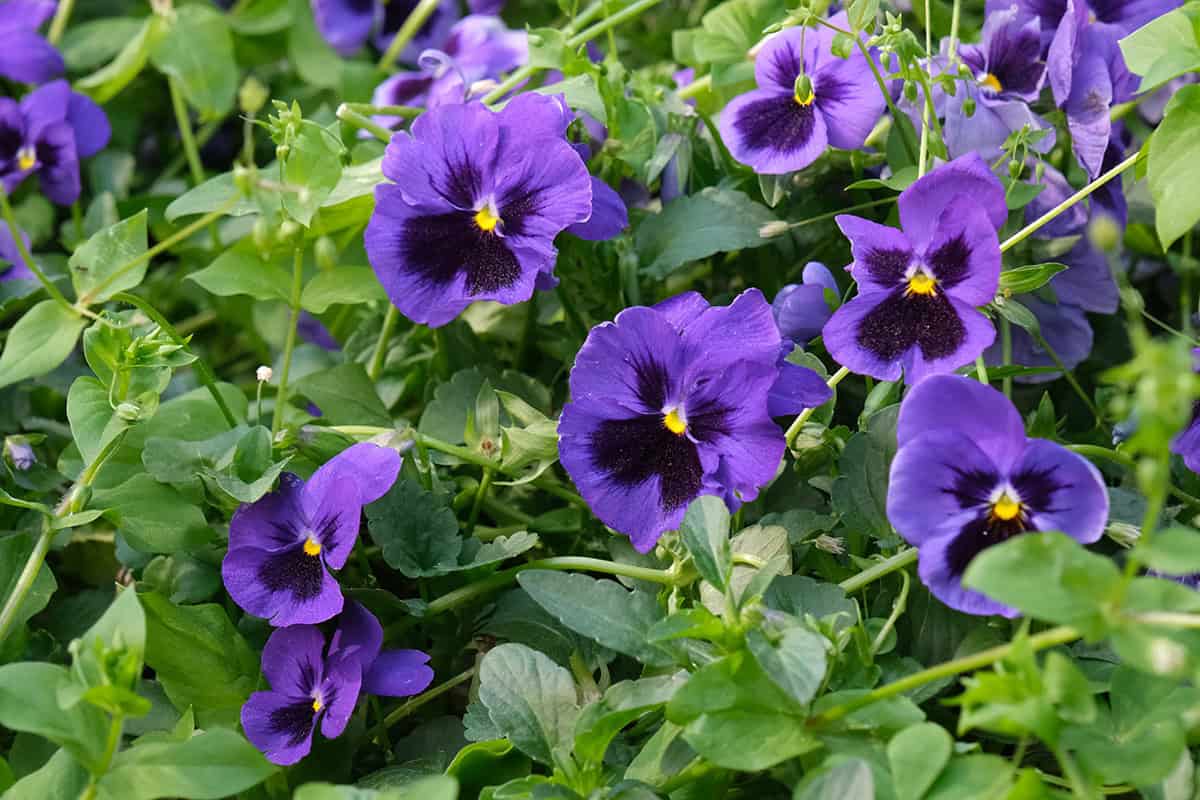
Violets are a great addition to your chicken’s environment. They are safe and non-toxic for chickens. These flowers not only add beauty to the garden but also provide some nutritional benefits.
Violets are rich in vitamin C. Chickens may occasionally peck at them in search of nutrients. Add violets to your garden for a natural and safe treat for your flock.
Violets prefer shaded areas and can thrive in various soil types. This adaptability makes them easy to grow even for novice gardeners. Consider planting them alongside other safe plants to diversify your garden.
Remember, while violets are non-toxic to chickens, it’s crucial to ensure they haven’t been exposed to pesticides. Always use organic gardening practices to keep your chickens safe.
Borage
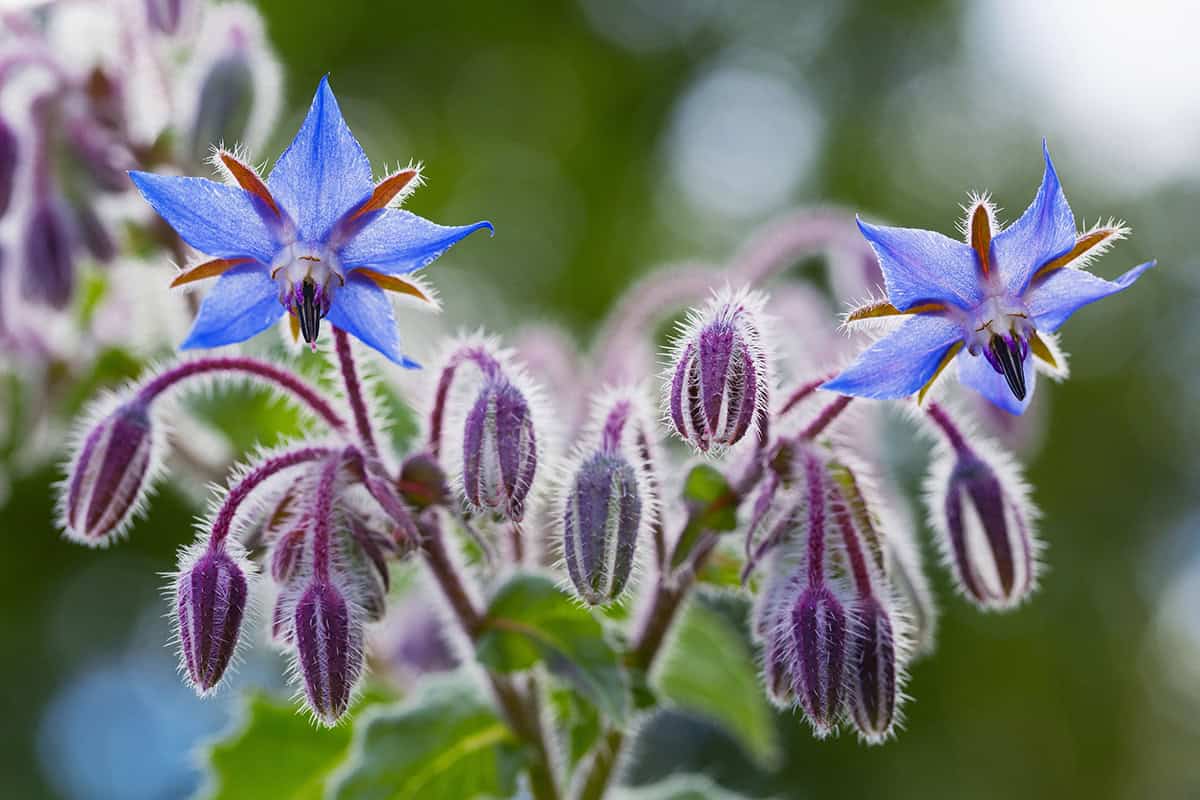
Borage offers a safe and beneficial addition to a chicken-friendly garden. This annual herb is known for its vibrant blue, star-shaped flowers. It provides aesthetic appeal alongside functionality.
Your chickens can roam freely around borage without harm. The plant grows well in sunny, dry conditions. Its adaptability in diverse climates makes it a preferred choice for many gardeners.
The flowers of borage attract bees, enhancing pollination. This can aid in maintaining a healthy ecosystem within your garden. Additionally, its ability to self-seed ensures repeated presence year after year.
Borage not only poses no threat but may also enrich the diet of your chickens. Chickens occasionally peck at borage leaves, getting a modest nutritional boost. While primarily grown for its flowers, this plant offers multiple advantages.
Consider planting borage in areas accessible to your chickens. Its resilience makes it a low-maintenance addition to your garden. Enjoy the balance of beauty and safety with borage for your feathered friends.
Mint Blossoms
Mint blossoms provide a delightful experience for both you and your chickens. These tiny flowers bloom in shades of white, pink, and purple. They add beauty to your garden.
Chickens find mint blossoms irresistible. The sweet fragrance attracts them, and they enjoy pecking at the flowers. You can feel confident giving them access to these safe blooms.
Including mint in your garden offers numerous benefits. Mint is known for deterring pests. This means it can help maintain a healthier environment for your chickens.
Both leaves and blossoms contribute to your chickens’ diet. They provide essential nutrients and a natural form of enrichment. This can support their overall well-being and dietary variety.
By planting mint, you also enjoy fresh leaves. These leaves can be used in your own kitchen. You can make tea, add them to salads, or use them as a garnish while your chickens enjoy their blossoms.
Growing mint is simple. It is a hardy plant that thrives easily. Just ensure it has enough sunlight and water. This makes it a low-maintenance option for enhancing your coop and garden area.
Frequently check your mint plants. Make sure they are free of harmful pesticides. This ensures your chickens’ safety. By doing so, you provide them with a natural, safe treat while keeping your garden lively and fresh.
Lemon Balm Flowers
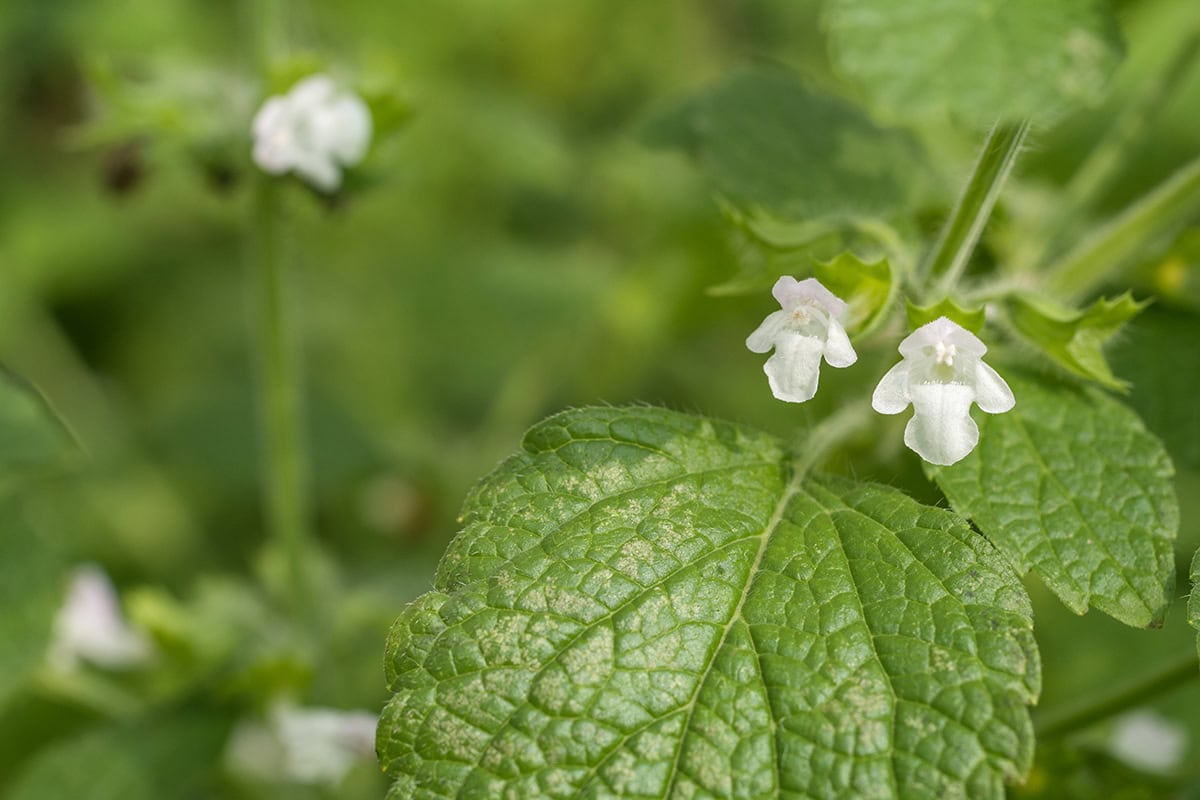
Lemon balm flowers are a safe addition to your chickens’ environment. They bloom in pale shades ranging from yellow to pink. These flowers are not just visually appealing but also add a sweet lemon scent to their surroundings.
Growing lemon balm is relatively easy. The plant thrives in well-drained soil and can grow up to 3 feet tall. It’s hardy in various climates and can withstand Zone 5 conditions. You can enjoy the fragrance while ensuring your chickens have a safe place to roam.
Lemon balm belongs to the mint family. Its scientific name is Melissa officinalis. This plant can be a lovely feature in your garden. Its flowers attract bees, enhancing pollination while being non-toxic to chickens.
When adding lemon balm flowers to your chickens’ area, ensure they have enough space to thrive. The plant requires sun and occasional watering to remain healthy. Trimming it occasionally can help maintain its shape and encourage new growth.
Incorporating lemon balm also contributes to a natural environment. The delicate aroma and colorful blooms create a harmonious space for your feathered friends. Plus, this low-maintenance plant provides gentle aesthetics without posing any danger to your chickens.
Basil Flowers
Basil flowers can be a safe and healthy addition to your chicken’s diet. Chickens can consume both the leaves and the flowers. The pleasant aroma and flavor of basil flowers can entice chickens to peck and explore. It’s a simple way to provide variety.
You should consider growing basil in your garden for easy access. Basil thrives in well-drained soil and full sun. You can plant it after the last frost of spring. Make sure to space the plants about a foot apart to give them room to grow.
Basil is easy to maintain and can be harvested throughout the growing season. When you see the flowers begin to bloom, you can cut them and offer them to your chickens. This helps prevent basil from going to seed and encourages more leaf growth.
Avoid using any pesticides on your basil plants. This ensures that the flowers remain safe for consumption. Keeping your basil plants organic is beneficial for the chickens’ health. Chickens might enjoy searching the garden for their favorite snacks.
Including basil flowers as part of your chickens’ diet promotes natural foraging. This activity is beneficial for their mental and physical health. Offering different food sources like basil flowers encourages curiosity and helps balance their diet.
Dill Flowers
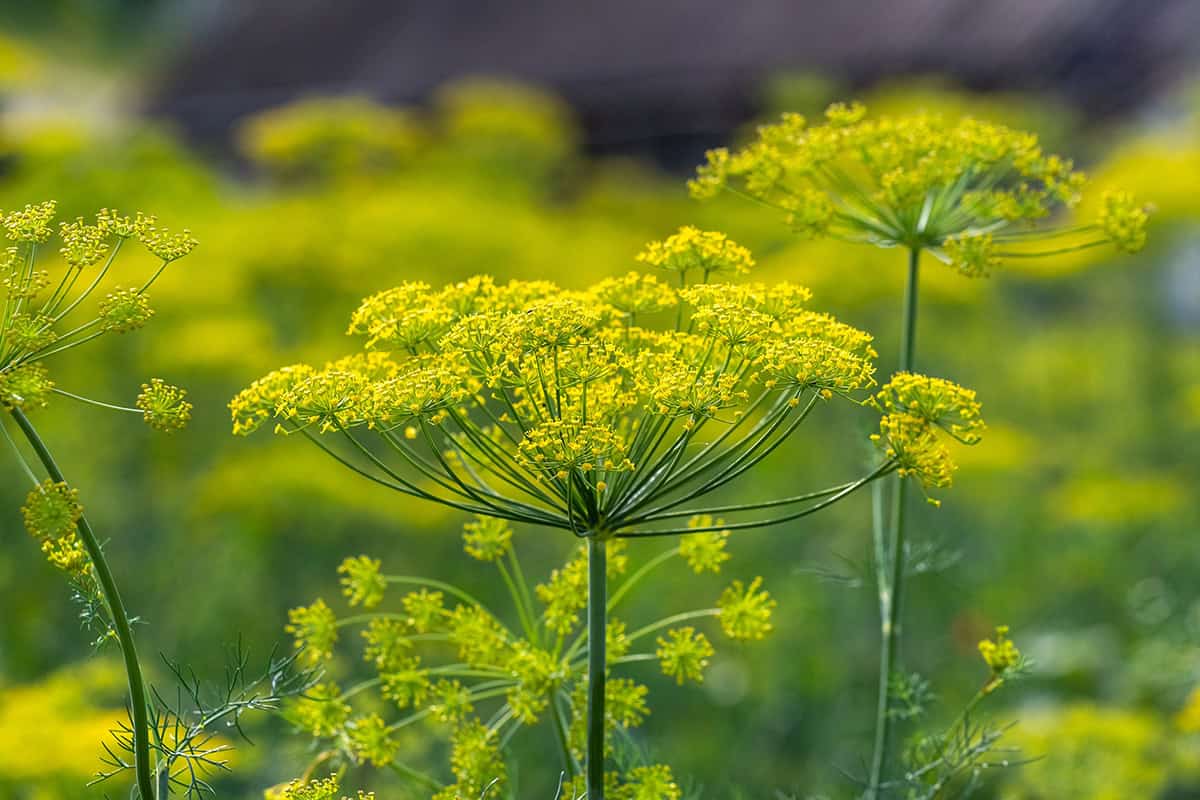
Dill flowers are safe for your chickens to enjoy. They provide a unique flavor that chickens seem to love. Not only are they a tasty treat, but they also carry some nutritional benefits that can support your chickens’ health.
When you add dill flowers to your chickens’ diet, you’re introducing a source of essential oils. These oils can help with digestion and overall well-being. Dill is known for its antioxidant properties, which can benefit chicken health.
You can use dill flowers fresh or dried. Simply scatter them in the coop or run. Chickens like to peck at the delicate blooms. This activity keeps them entertained and active.
Dill is easy to grow in your garden. It’s an annual herb that thrives in warm weather. Plant it in full sun and well-drained soil for optimal growth. Dill plants can also attract beneficial insects to your garden, offering more than just chicken feed.
Harvesting dill flowers is simple. Wait until the plants produce large, lacy blooms. You can cut them directly from the stalks and feed them to your flock. Store any extra flowers in a dry, cool place to preserve them.
